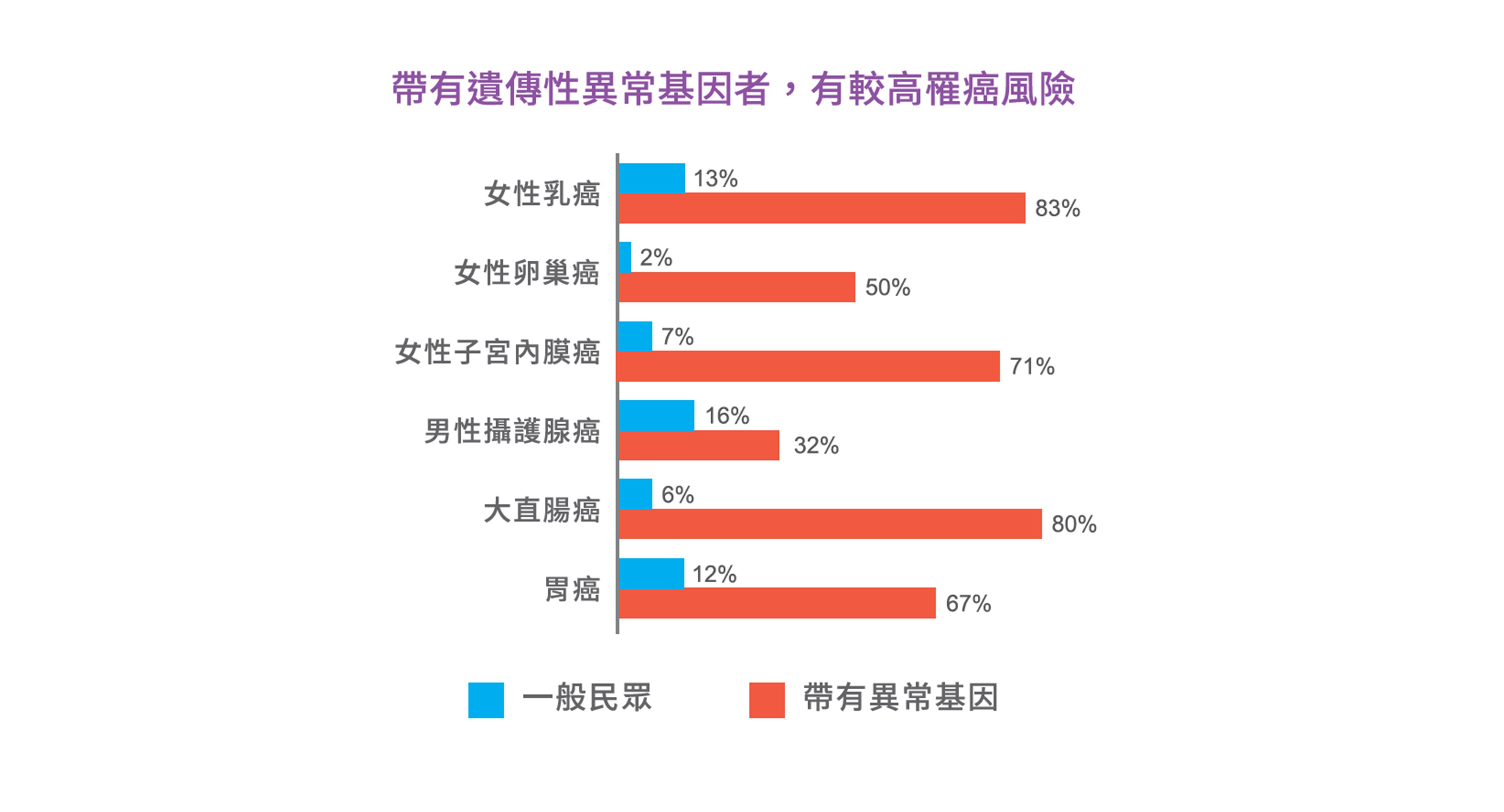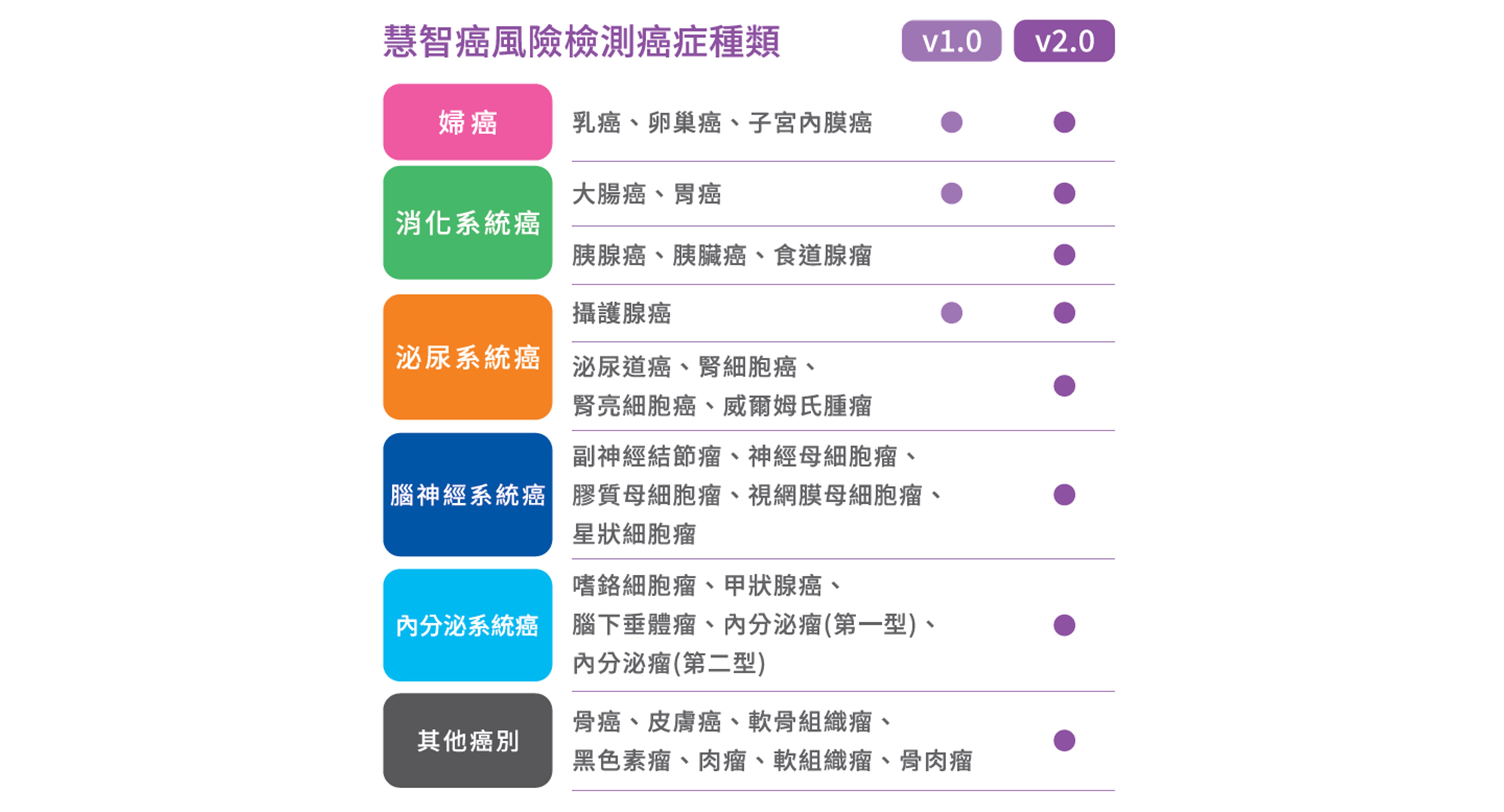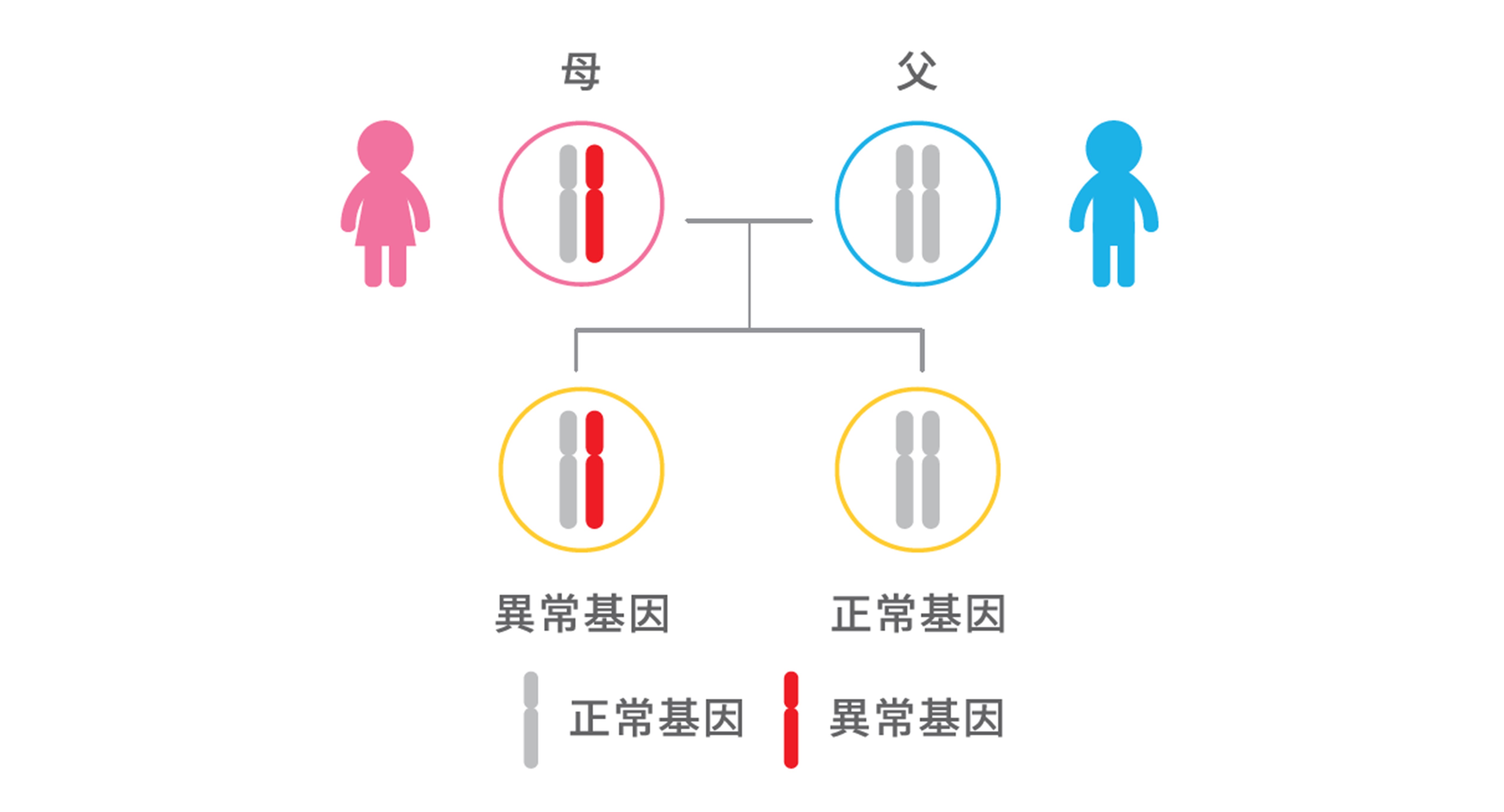慧智癌風險-v1.0/ v2.0
了解癌症家族性遺傳,評估罹癌風險
服務介紹
■ 癌症與基因
大多數癌症是因為後天自發性的體細胞基因突變(Somatic mutation) 所造成,但約10%的癌症是因為家族遺傳而來的基因變異所造成,這些突變稱為生殖細胞突變(Germline mutation)。目前已經知道乳癌、大腸直腸癌、子宮內膜癌、卵巢癌、攝護腺癌等都可能與遺傳性癌症有關,若家族中有同類型癌症不斷發生,除了定期的癌症篩檢之外,更應該考慮基因遺傳的問題,提高警覺!

每個人身上的基因都是從父母遺傳而來,所以當父母身上帶有變異、功能不完整的基因,這些基因有50%的機會遺傳給下一代,而這些變異可能使細胞無法正常地發揮特定功能,進而導致細胞更容易癌化,增加罹癌風險。
檢測說明
■ 包含常見遺傳性癌症的相關基因
慧智癌風險v1.0包含67個基因,可分析6種不同癌症的常見遺傳性突變,而慧智癌風險v2.0包含151個基因,可分析30種不同癌症的常見遺傳性突變,可依據自身情況,評估適合哪一個檢測套組。

適用對象
健康人--罹癌風險評估:
◆ 家族中罹患遺傳性癌症人數在兩人以上◆ 近親中被診斷出早發性遺傳性癌症(50歲以下)◆ 罹患兩種以上原發癌,但沒有家族病史的罹癌患者
檢測流程
慧智優勢


